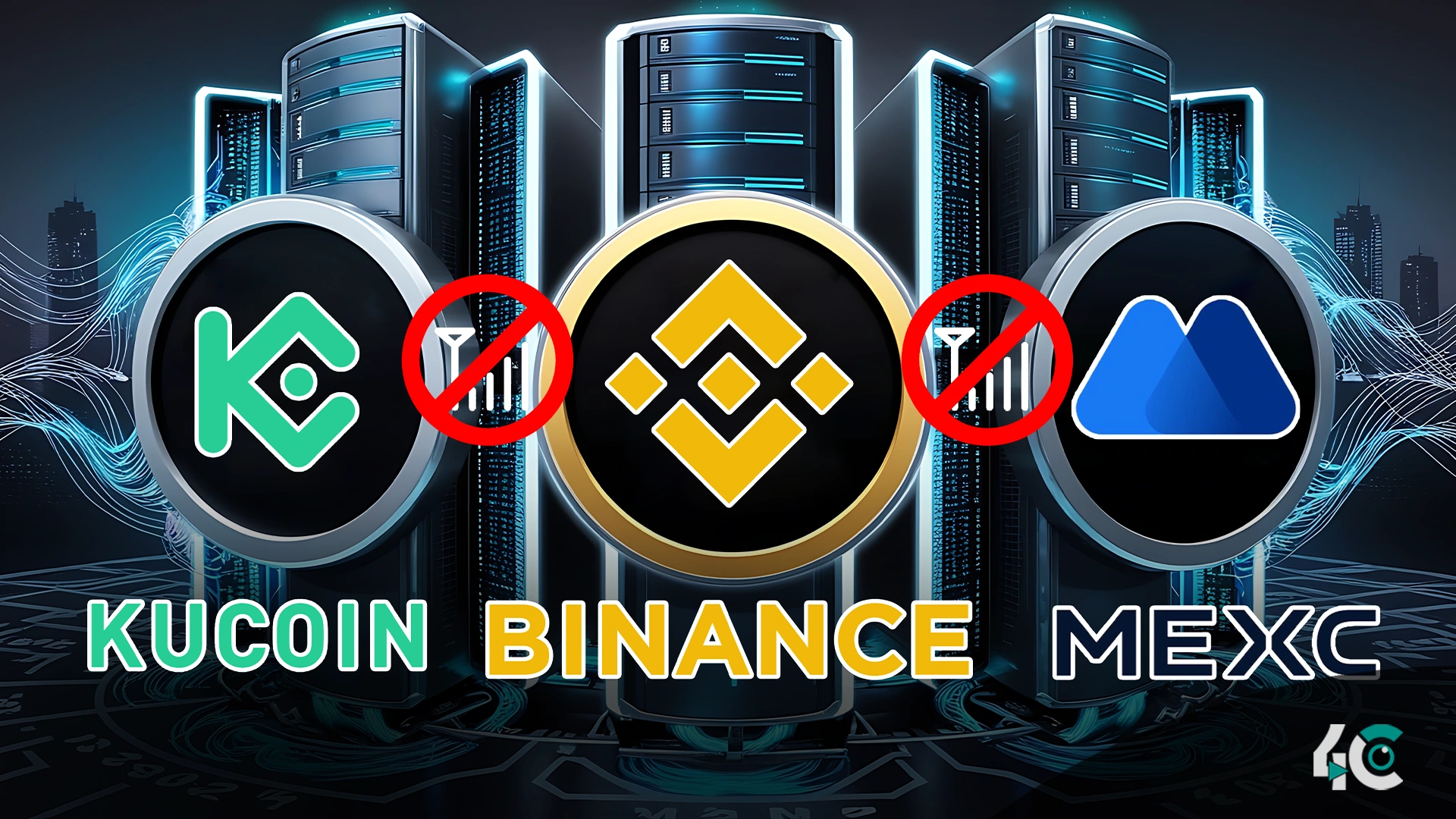The AWS crypto outage has disrupted services across major crypto platforms, exposing vulnerabilities in cloud-reliant infrastructure. Several exchanges experienced downtime, delays, and service interruptions, prompting renewed calls for decentralization and infrastructure resilience.
An AWS Outage Wreaks Havoc on Cryptocurrency Exchanges
A large network failure at Amazon Web Services on April 15 interrupted the operation of several major cryptocurrency exchanges, including Binance, KuCoin, and MEXC, delaying withdrawals and causing failed trades and other problems for users. The outage indicated how reliant the entire crypto ecosystem is on AWS or cloud infrastructure.
AWS went down, causing the failure of numerous services and data centers, with connectivity failure being the primary reason. These technical problems led to delays and outages at CEXs, which raised concerns about dependence on third-party providers.
Impact on Crypto Platforms
The world’s largest crypto exchange by trading volume, Binance, was one of the first to notice the disruption. The platform reported that it was still processing some user orders, while others were failing. Binance asked users to attempt any transactions that failed and said that the technical team was working closely with AWS. The team completed the work before the closure.
The exchanges KuCoin and MEXC experienced several issues, such as strange trades on the chart, failed order cancellation, and delay in moving assets. MEXC assured its users that their funds remain safe despite technical difficulties. DeBank and Rabby, a popular wallet provider, also experienced outages. DeBank was the slowest to return to normal, they said.
Most affected platforms were up and running by mid-afternoon UTC, as most platforms tackled such incidents with ease— a testimony to the vulnerability of centralized systems.
Renewed Debate Over Centralized Infrastructure.
The common disturbance renewed debate about the crypto industry’s dependence on centralized cloud equipment. Many exchanges—Coinbase, Crypto.com, Kraken, and Huobi—are heavily reliant on AWS for fast, high-volume trading. But when there are outages on AWS, the wobble can suddenly destabilize things.
Industry leaders have used the incident to push for more decentralized options. The CEO of Bitget proposed looking into blockchain solutions for cloud storage and computing. Examples of these include Filecoin, Akash Network, and Render Network. By placing infrastructure in different nodes instead of centralized ones like AWS, these decentralized platforms can reduce potential risks.
Growing Calls for Fault-Tolerant Infrastructure.
It raises serious questions about the sector’s robustness to technical glitches due to growing adoption and rising trading volumes of cryptocurrencies. The prompt outage indicates a critical need for better distributed fault-tolerant infrastructure, although services have been restored for now.
Many platforms in the space continue to rely on centralized cloud providers to scale and be efficient, even as decentralization is in the DNA of the movement. This creates tension between new and existing systems in the competitive crypto war, which grows faster.
Conclusion
The crypto community was awakened by the AWS outage on April 15, which underscored the risks associated with relying on a centralized cloud. Exchanges like Binance, KuCoin, and MEXC managed to bring back services fast after the outage. Since then, voices have become powerful for truly decentralized solutions that also fit various crypto use cases.
Infrastructural problems will be seen only when crypto platforms mature so resilience and trust are ensured. The outage has intensified discussions concerning diversifying infrastructure and utilizing decentralized solutions to mitigate any further disruption in the future. A crypto ecosystem can only be truly solid if the sector is decentralized in both words and actions.



























